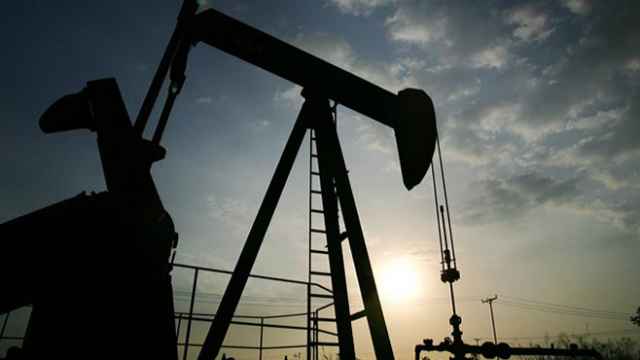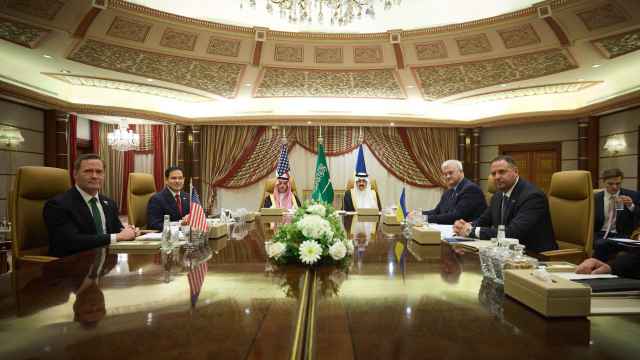OPEC Gulf members and crisis-hit producer Russia held the line on resisting oil output cuts, a message that helped send oil to a fresh five-year low on Tuesday.
A near-$20 drop in prices since OPEC declined to cut output at a Nov. 27 meeting has yet to prompt the Gulf members — who overruled calls for output cuts by poorer members such as Venezuela — to reverse course.
Russia has said it would not cut production even if oil prices fell below $60 per barrel — far below some $100 a barrel it needs to balance its budget — a message reinforced on Tuesday by Energy Minister Alexander Novak arriving at a gas producers summit in Qatar.
"If we cut, the importer countries will increase their production and this will mean a loss of our niche market," he told reporters, speaking through an interpreter.
"We plan to preserve the plan for 2014 production without any increase or decrease," he said.
His comments came as the ruble fell to a new all-time low despite the Central Bank's steep rate hike on Monday.
The United Arab Emirates' oil minister on Monday said there was no need for an emergency Organization of the Petroleum Exporting Countries meeting and the market should be left to balance itself.
Fellow Gulf OPEC member Qatar echoed that view on Tuesday. "We need to watch the market closely, but it will settle eventually," Qatar's oil minister, Mohammed al-Sada, said.
Oil prices dropped to below $59 per barrel on Tuesday for the first time since 2009 and are now down almost by a half since June due to weak demand and growing supply from the United States.
When OPEC, led by Saudi Arabia, decided against cutting output last month, some OPEC ministers suggested the cartel could act only in tandem with non-OPEC producers such as Russia to help balance the market.
The collapse of the ruble and plunging oil revenue present one of the biggest challenges for President Vladimir Putin during his 15-year rule at a time when the Russian economy is already struggling under Western sanctions over Ukraine.
Novak said Russia, the world's second largest oil exporter after Saudi Arabia, will maintain its output levels even if there was no guarantee prices would not go much lower.
"No one will tell you this," Novak said when asked what was the floor for oil prices.
He also said Russia agreed with the view of Saudi Arabia that the oil market would eventually stabilize itself. The Saudis are not attending the Doha gas gathering.
He said oil companies have so far not made any changes to ongoing projects in Russia, but the possibility of them freezing some projects could not be ruled out.
"We have been assessing risks, the production may drop automatically because of the low prices and the decision by oil companies to freeze some of the investment projects," he said.
"Russia is not a country that increases supply to the global market ... and with the growth of domestic consumption export volumes are slightly decreasing," he added.
A Message from The Moscow Times:
Dear readers,
We are facing unprecedented challenges. Russia's Prosecutor General's Office has designated The Moscow Times as an "undesirable" organization, criminalizing our work and putting our staff at risk of prosecution. This follows our earlier unjust labeling as a "foreign agent."
These actions are direct attempts to silence independent journalism in Russia. The authorities claim our work "discredits the decisions of the Russian leadership." We see things differently: we strive to provide accurate, unbiased reporting on Russia.
We, the journalists of The Moscow Times, refuse to be silenced. But to continue our work, we need your help.
Your support, no matter how small, makes a world of difference. If you can, please support us monthly starting from just $2. It's quick to set up, and every contribution makes a significant impact.
By supporting The Moscow Times, you're defending open, independent journalism in the face of repression. Thank you for standing with us.
Remind me later.





